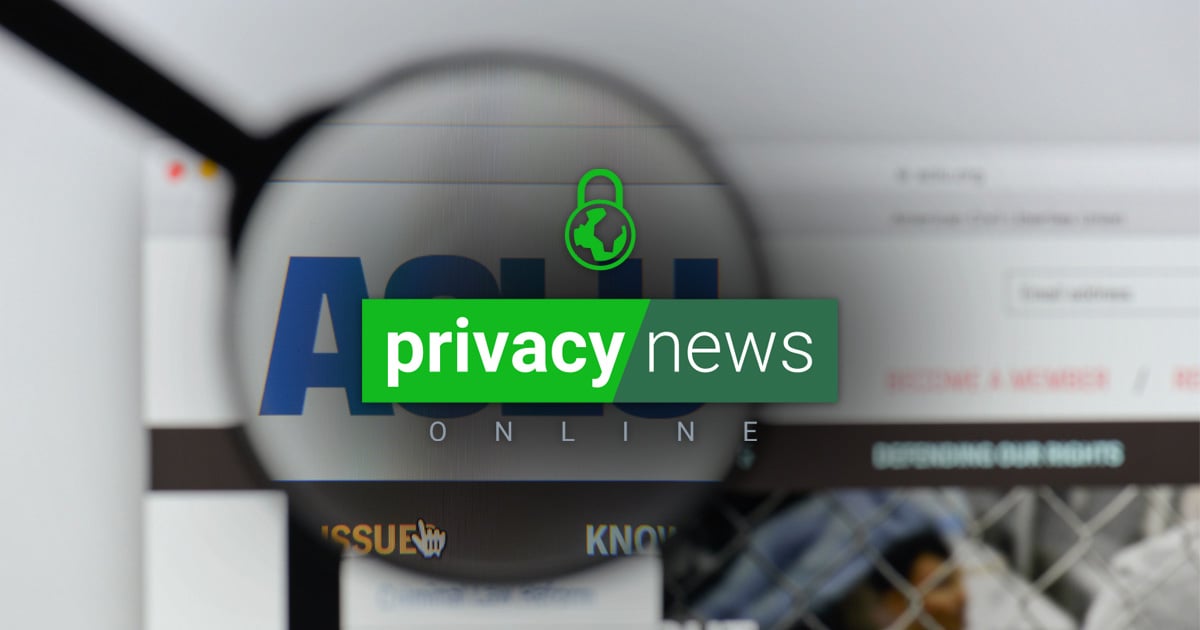Privacy News Online | Weekly Review: April 9, 2021

Featured: Privacy News Online – Week of April 9th, 2021
 Workplace surveillance is entering our homes and driving through our streets
Workplace surveillance is entering our homes and driving through our streets
Surveillance in the workplace is nothing new, but there are far more people working in places where other people may be in view and have their privacy unjustly compromised. One great example is the large number of people working from home now, where a webcam may expose the private lives of family members. Workplace surveillance is hitting the streets as well, with many delivery companies installing cameras on their vehicles. Amazon recently rolled out a surveillance system to over 75,000 of its vehicles, each with 3 outward facing cameras recording the general public. That’s an additional 225,000 cameras driving around, recording unsuspecting motorists.
 Dual-use digital surveillance technologies finally get regulated – a little
Dual-use digital surveillance technologies finally get regulated – a little
Digital surveillance tools have become much more powerful in recent years, and also more profitable. Technology companies around the world have been selling digital surveillance technology to other countries, with little to no oversight or public record. The recently passed European Union dual-use regulation forces companies to get a government license to legally sell technology with potential military applications and requires the government to publicly share details about the licenses they grant. While it is a step in the right direction, human rights organizations call it a “missed opportunity” because it fails to provide explicit and strong conditions on EU member state authorities and exporters.
 ACLU shares user data with Facebook and friends
ACLU shares user data with Facebook and friends
The American Civil Liberties Union, or ACLU or short, is a regular critic of Facebook for its many privacy failures over the years. Yet, a recent update to its privacy statement reveals that they may share your personal information with Facebook if you use their website. They go on to say that the data may include your name, zip code, email address, and “other information”. In addition to sharing data with Facebook, the ACLU says they also share, rent and trade user information with other organizations.
More Privacy News This Week:
LexisNexis to provide giant database of personal information to ICE
Research and data brokerage firm LexisNexis signed a $16.8 million contract to sell information to U.S. Immigration and Customs Enforcement, according to documents obtained by The Intercept. The company’s databases offer a complete view of a person’s existence; by consolidating records of where you’ve lived, where you’ve worked, what you’ve purchased, your debts, run-ins with the law, family members, driving history, and thousands of other types of breadcrumbs. This is a tremendously powerful system capable of tracking people down, with little oversight, placed in the hands of an agency with numerous accusations of human rights violations.
533 million Facebook users’ phone numbers and personal data have been leaked online
The exposed data was posted for free on a hacking forum and includes phone numbers, Facebook IDs, full names, locations, birthdates, bios, and, in some cases, email addresses. The data appears to have been scraped in 2019 but could still prove very valuable to bad actors attempting social engineering attacks.
Malware is targeting gamers
If you like playing video games, there’s a good chance you’ve looked up tips, tricks, and tweaks to give yourself an edge in your favorite game. Malware makers know this, and they’ve begun advertising Trojan horse malware that claims to be cheats, hacks, or mods for popular games, including Call of Duty: Warzone.
Gamers are being targeted via advertisements, how-to YouTube videos, and gaming forum posts that encourage them to download game mods that are in reality designed to infect victims’ computers. This malware may include remote access Trojans such as XtremeRAT, which has been known to steal victims’ data.
https://therecord.media/in-a-rare-step-activision-warns-cod-players-of-malware-hidden-in-cheat-apps/
Brought to you by Private Internet Access
Privacy News Online is brought to you by Private Internet Access, the world’s most trusted VPN service.
Special thanks to Intego
Thank you to Josh Long, our cybersecurity correspondent from Intego, makers of award-winning security software.

